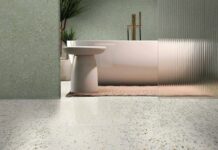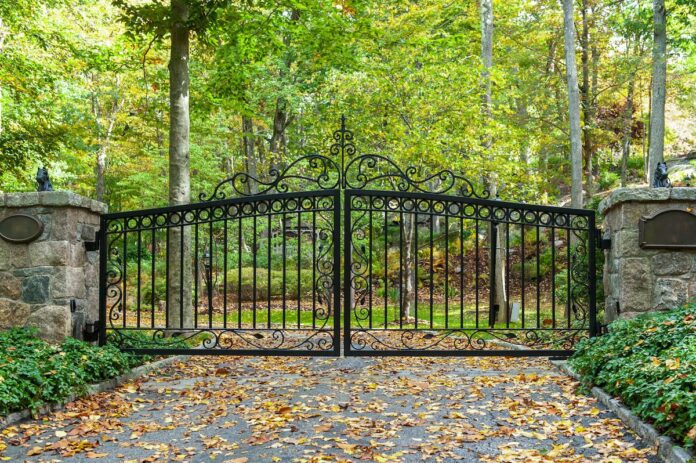
Choosing the right material for your driveway gate is a crucial decision that impacts not just the aesthetics of your property but also its security and functionality.
With a variety of materials available, each offering different benefits and challenges, understanding your specific needs and environmental conditions is key.
From the durability of wrought iron to the modern appeal of aluminum, metal driveway gates, and the warm, natural look of wood, selecting the ideal material involves balancing style, maintenance, budget, and longevity.
Here are five essential tips to guide you through this important choice, ensuring that your driveway gate enhances both the security and curb appeal of your home.
1. Durability and Maintenance
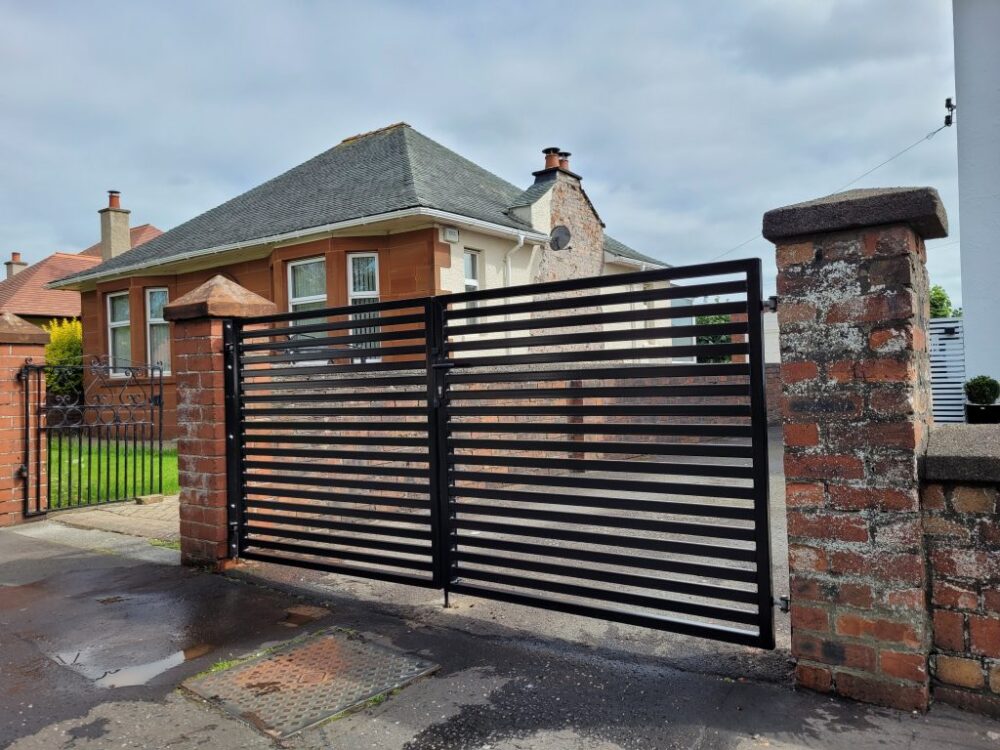
When selecting a driveway gate, the durability and maintenance of the material are key. Materials like wrought iron, while strong and durable, require consistent upkeep such as painting and rust treatment to maintain their integrity and aesthetic.
Aluminum is a popular alternative, known for its resistance to corrosion and minimal maintenance needs, making it ideal for harsh weather conditions or coastal areas.
Wood, offering a classic appearance, demands regular treatment to prevent decay and weather damage, making it less ideal for very humid or rainy environments unless properly maintained.
It’s important to consider not only the aesthetic and functional longevity of the material but also the time and cost associated with maintaining it in good condition. For those seeking low-maintenance options, synthetic materials like vinyl or composites could be ideal as they often only need regular cleaning.
Additionally, think about the availability of the materials in your region, as this can affect both cost and the environmental impact of transportation.
2. Security
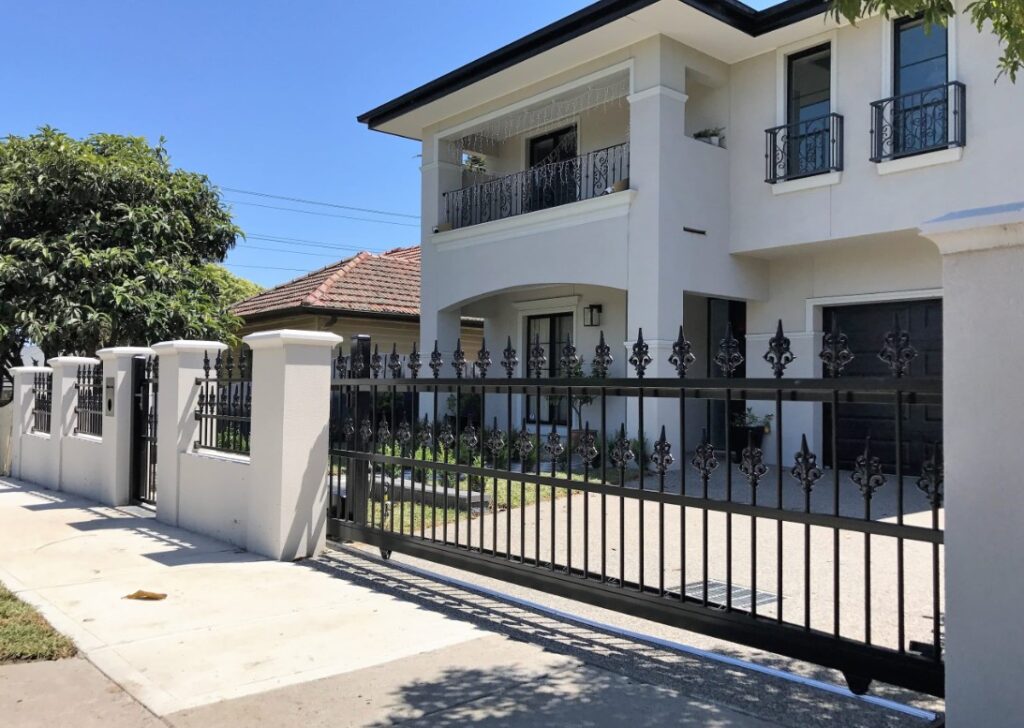
For driveway gates, security is crucial. Sturdy materials like steel and wrought iron are top choices for those prioritizing security due to their strength and difficulty to tamper with or damage.
These materials provide a physical barrier that is not only hard to overcome but also visually imposing, which alone can deter potential intruders. While wood and vinyl can provide some level of security, they do not offer the same strength as metal options and can be vulnerable to forced entry if not reinforced.
It’s also important to consider how the gate operates; automated gates can offer enhanced security features like integrated cameras, intercom systems, and secure locking mechanisms that add an additional layer of protection.
Furthermore, the design of the gate should prevent easy climbing or access, with features like a flat, slick surface that makes scaling difficult.
Customization options can also allow for additional security features to be incorporated, such as spikes or sharp points atop the gate, further enhancing security.
3. Aesthetic Compatibility
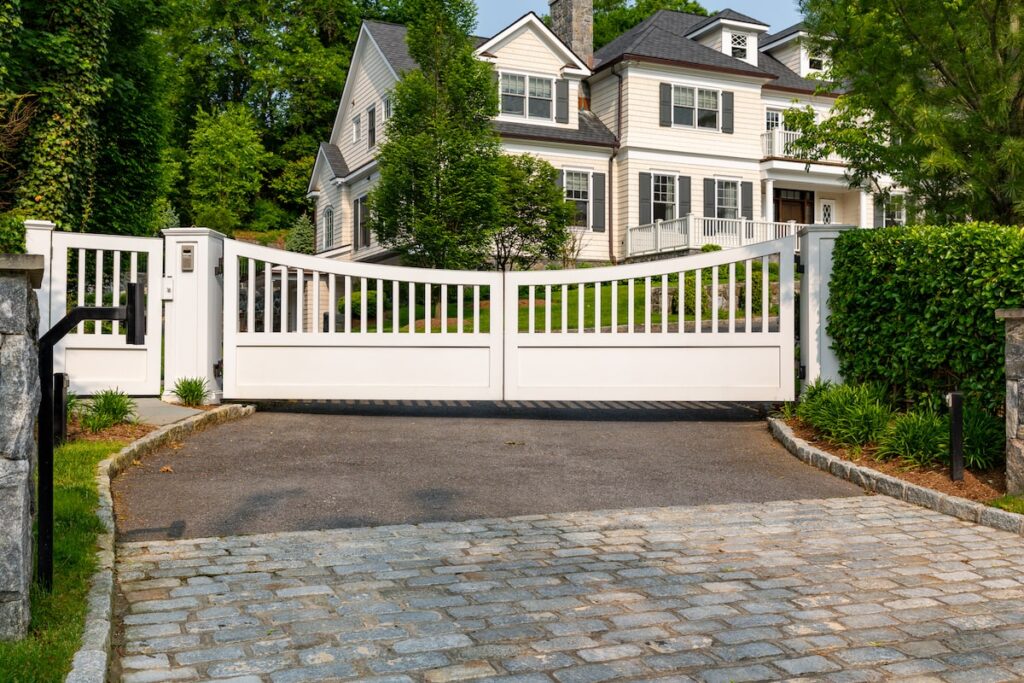
The aesthetic compatibility of your driveway gate with your home and landscape is crucial. The right material and design can complement your home’s architecture and increase curb appeal.
For example, ornate iron gates can enhance a classic or historical home, while sleek, minimalist designs in aluminum can suit modern aesthetics. The gate serves as a focal point and its design and material should integrate seamlessly with the surroundings, enhancing the existing features of your property.
When choosing the material, also consider how it will age over time and its ability to withstand various weather conditions while maintaining its aesthetic qualities. Beyond just the material, the color, finish, and craftsmanship can significantly affect how the gate will harmonize with the rest of your property.
Custom designs can tailor the gate exactly to your architectural style, ensuring that it is not just a functional element but also an integral part of your home’s visual appeal.
4. Cost Efficiency
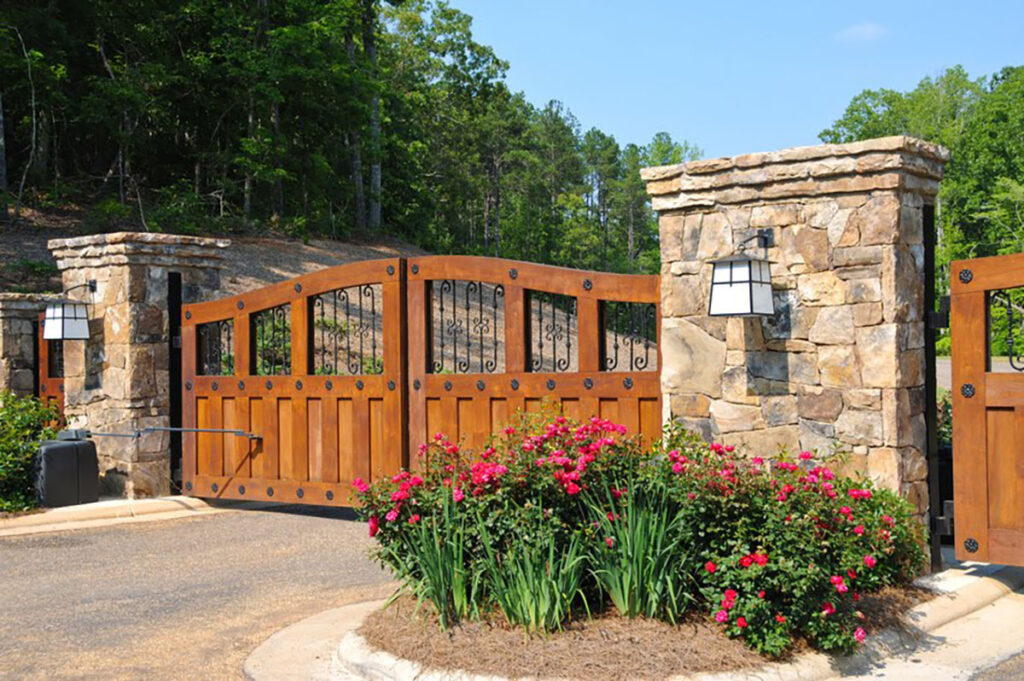
Evaluating cost efficiency when choosing a driveway gate involves considering both the initial costs and the ongoing expenses associated with the material. While steel and aluminum might have higher upfront costs, their durability and lower maintenance requirements can make them more cost-effective over time.
Wood, although initially cheaper, might end up being more expensive due to maintenance and potential replacement costs. When assessing cost efficiency, also think about the insulation properties of the materials, as some gates can provide additional benefits such as reducing street noise or increasing privacy, which can contribute to energy savings inside the home.
Moreover, the resale value the gate adds to your property is another aspect to consider; a well-chosen gate can significantly enhance the property’s appeal and value to prospective buyers, making it a wise investment.
5. Environmental Impact
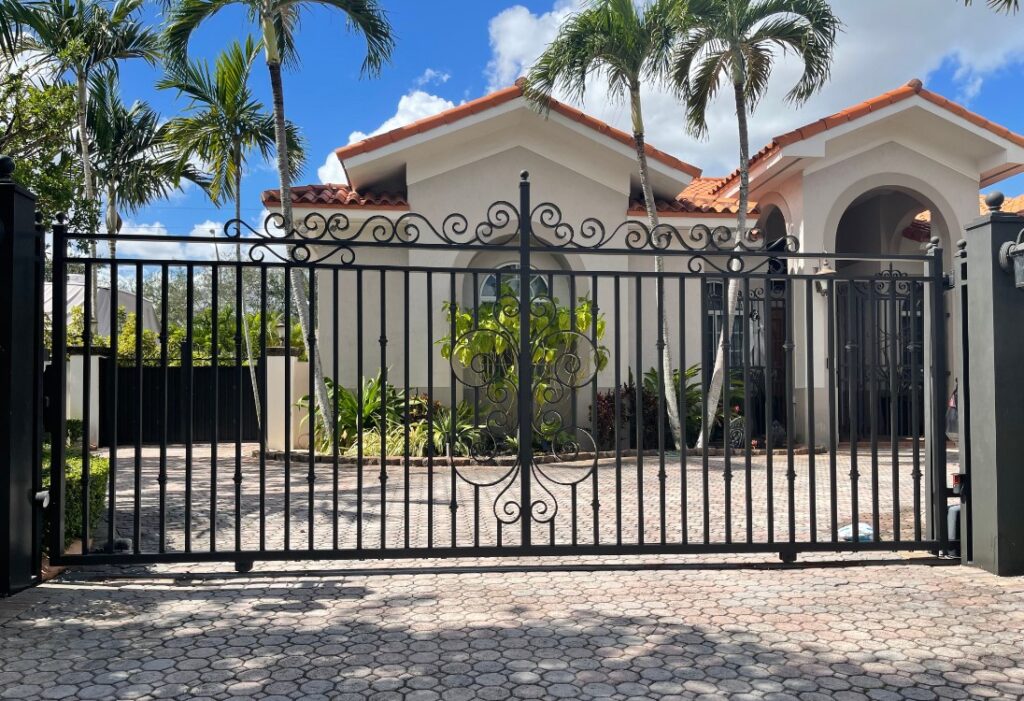
Choosing materials with a low environmental impact is increasingly important. Materials like aluminum and steel are not only durable but also recyclable, which reduces their lifetime environmental footprint. Wood can be a sustainable option if sourced responsibly, and choosing local wood can further reduce environmental impact by minimizing transportation emissions.
Additionally, consider the manufacturing process of the gate materials; some processes are more energy-intensive than others. Opting for materials and manufacturers that adhere to sustainable practices can help reduce your overall environmental impact.
Moreover, using recycled or reclaimed materials can also be an excellent way to ensure sustainability in your choice of driveway gate.
By selecting environmentally friendly materials, you contribute to a healthier planet while also potentially improving the energy efficiency and ecological footprint of your home.
Last Words
In conclusion, choosing the right material for your driveway gate is a multifaceted decision that hinges on several crucial factors. Durability and maintenance are essential to ensure that the gate withstands the elements and remains in good condition with minimal upkeep. Security considerations are paramount, as the gate serves as a primary line of defense against unauthorized access.
Aesthetically, the material should complement and enhance the architectural style of your home, contributing positively to the property’s overall curb appeal. Cost efficiency is also vital, involving an analysis of both initial expenditures and long-term maintenance costs.
Finally, the environmental impact of the material should be considered to align with sustainable living practices. A well-chosen driveway gate not only boosts the functionality and security of your property but also adds value and charm, making it a wise investment in the long term.

